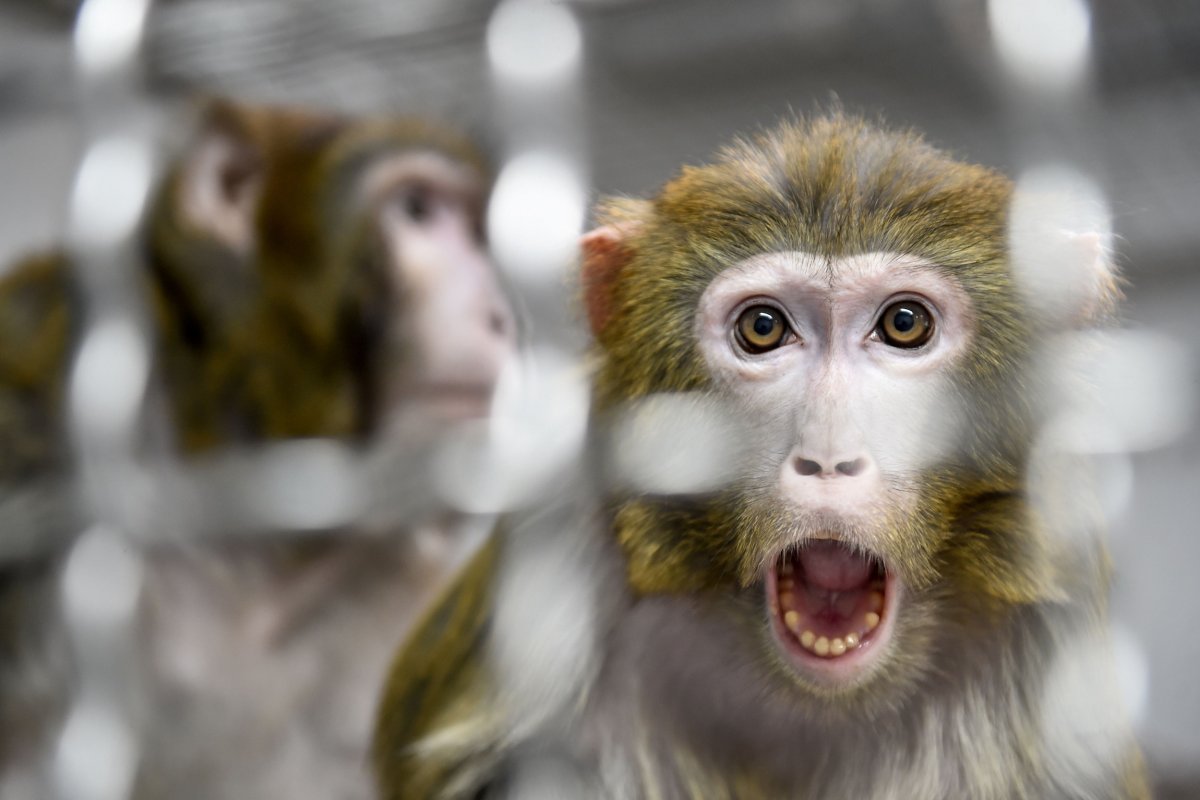🎙️ Voice is AI-generated. Inconsistencies may occur.
A team of scientists from the U.S., China and elsewhere have developed embryos that are a mix of human and monkey cells for the first time in history.
The embryos, which were detailed on Thursday in the scientific journal Cell, were created for scientists to uncover new ways to produce organs for people who need transplants.
The researchers injected 25 stem cells from humans, known as induced pluripotent stem cells (or ISP cells), into embryos from macaque monkeys. The scientists then grew the mixed embryos in test tubes for up to 20 days in order to study how the animal and human cells communicate with one another.
The idea behind the research is to determine whether or not monkey's could eventually be able to grow human organs for transplants. According to the team of scientists, thousands of people die every year waiting for such transplants.
In recent years, some scientists have been experimenting with injecting human stem cells into sheep and pig embryos to see if they could become capable of growing human organs. However, that research has so far been unsuccessful, according to NPR.
Now, the team of scientists chose to experiment with monkeys because they are much more closely related to humans genetically. The researchers reported that after one day, they were able to detect human cells growing in 132 of the injected embryos.
However, most of the embryos died during the 20-day experiment, and those that survived only retained 4 to 7 percent human cells, according to the South China Morning Post. Nonetheless, the scientists found that the research represented significant progress for this type of study.
"This knowledge will allow us to go back now and try to re-engineer these pathways that are successful for allowing appropriate development of human cells in these other animals," Juan Carlos Izpisua Belmonte, a professor in the Gene Expression Laboratory of the Salk Institute for Biological Sciences in La Jolla, California, told NPR. "We are very, very excited."

These types of mixed-species embryos are known as chimeras, named after a fire-breathing creature from Greek mythology that is part lion, part goat and part snake.
Though the researchers believe the work to be an important feat, other scientists have raised concerns that the experiment may be unethical. One concern is that someone could eventually try to take this research a step forward, and attempt to create a baby from of a mixed embryo.
"Nobody really wants monkeys walking around with human eggs and human sperm inside them," Hank Greely, a Stanford University bioethicist who co-wrote an article in the same issue of the journal that critiques the line of research while noting that this particular study was ethically done, according to NPR.
"Because if a monkey with human sperm meets a monkey with human eggs, nobody wants a human embryo inside a monkey's uterus," Greely added.
Kirstin Matthews, a fellow for science and technology at Rice University's Baker Institute, told the news outlet that it would become an ethical concern if human cells become part of the developing brain of such a mixed embryo.
"Should it be regulated as human because it has a significant proportion of human cells in it? Or should it be regulated just as an animal? Or something else?" Matthews said. "At what point are you taking something and using it for organs when it actually is starting to think and have logic?"
"I think the public is going to be concerned, and I am as well, that we're just kind of pushing forward with science without having a proper conversation about what we should or should not do," she added.
Lead author of the study, Tan Tao of Kunming University of Science and Technology, defended the research Friday, stating that the study was "not a work of bad taste, but [one] of highly practical value," according to the Post.
"Our goal is not to generate any new organism, any monster," Belmonte told NPR. "And we are not doing anything like that. We are trying to understand how cells from different organisms communicate with one another."
Newsweek contacted the study's lead author for additional comment, but did not hear back in time for publication.



